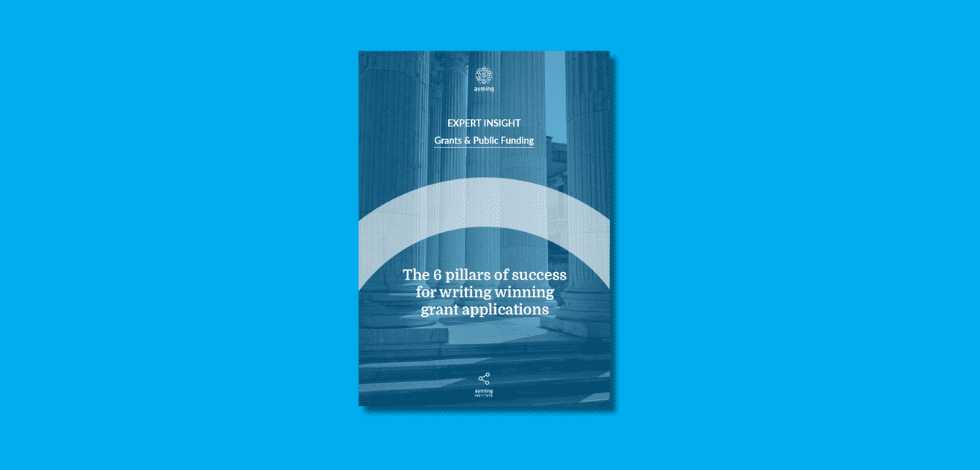London, 31 March 2025: Following last week’s release of the highly anticipated Spring Statement 2025, we reflect on the proposals mentioned, their implications, and what they signal for the broader R&D landscape.
Commenting on Labour’s Plan for Growth, Njy Rios, Partner, R&D Tax Incentives at Ayming UK, says:
“It’s one thing to say you’re pro-growth; it’s another to turn rhetoric into reality. The rise in employer’s national insurance is squeezing bottom lines across the board, meaning firms are trying to scale and grow with fewer resources. The Government is right to be getting rid of unnecessary red tape, but without a clear plan for innovation, the risk is that businesses prioritise short-term survival over long-term innovation which will only worsen the UK’s productivity problem.
“Against this backdrop, firms’ ability to access R&D tax relief is more important than ever. The issue is, however, that while many businesses are aware of the relief, there is confusion about whether they’re eligible. HMRC’s efforts to curb fraudulent claims are well-intentioned, but this has created an environment whereby many legitimate claims are being rejected which is preventing businesses from making claims in the first place. If the Government wants to kickstart economic growth, it needs to start by removing the complexity from the R&D tax relief process so that innovation is rightly rewarded.”
Commenting on the inclusion of defence spending in the National Wealth Fund, Benjamin Craig, Associate Director, R&D Tax Incentives, says:
“The Government has good reasons to increase defence spending, but this shouldn’t come at the expense of investment in high-growth sectors like clean energy and green technology. The UK has world-class capabilities in these areas, and it would be a serious mistake to shelve them as investment priorities. Businesses are already finding it hard to plan for the future in the current unstable environment, and they need clear and consistent policy commitments on the distribution of funds.
“Recent reports highlighting a lack of co-ordination between Whitehall departments in delivering Labour’s industrial strategy are concerning – especially for industries relying on targeted government support. Greater collaboration, within Westminster and between Government and businesses, will be crucial in delivering an industrial strategy that genuinely understands what businesses need to scale and grow.
“ The industrial strategy also needs to provide clarity and stability, not just on which sectors the Government wants to prioritise but also on how much funding they will receive and who is eligible. For example, does a project developing a more efficient petrol combustion engine fall under the category of green technology? Having a clear direction on the allocation of investments is the first critical step to nurturing and incentivising innovation.”
Following the Spring Statement, the Government published three consultations intended to improve tax compliance:
- R&D Tax Relief advance clearances
- Enhancing HMRC’s ability to tackle tax advisers facilitating non-compliance
- Behavioural penalties reform
The Treasury’s goal in this area is to reduce tax avoidance and the well-publicised problems of ‘error and fraud’. The first consultation examines the extension of the Advance Assurance scheme for R&D reliefs. Originally introduced over a decade ago, this initiative has seen minimal adoption, with HMRC acknowledging that fewer than 0.1% of eligible companies currently utilize the facility. The ongoing consultation seeks to understand the reasons behind this limited uptake and explore the potential benefits of expanding the scheme.
The second measure focuses on HMRC’s authority to address advisors who enable non-compliance – a persistent issue that has impacted R&D in recent years. This follows last year’s consultation on raising standards and represents a continued effort to strengthen oversight, which leaves much to be discussed in this area.
The final consultation examines potential reforms to the penalties regime for non-compliant taxpayers. While this may attract less attention, it raises important questions about whether HMRC is shifting away from the current ‘presumption of innocence’, toward a system where any amended return automatically incurs a penalty.
These consultations signal a broader push toward tightening compliance measures, but they also raise critical questions about fairness, accessibility, and the balance between deterrence and support for businesses navigating an increasingly complex tax landscape
About Ayming
As a professional services company, Ayming partners with businesses and institutions around the world to unlock lasting value, year after year. Translating complex policy into opportunities, while managing the transformation that comes with growth.
Our team is over 1,300 experts in Innovation, HR, and Taxes. We have specialised knowledge and decades of experience in international and local policy across 14 countries. Our premium services create new possibilities for investment. And our approach goes beyond consulting, collaborating in the field with clients of all sizes and sectors. So we can deliver tangible results driven by trust – now and for years to come.
For all media enquiries:
Annabel Riviero
Annabel.Rivero@aspectusgroup.com
+44 7500 321 480

















No Comments